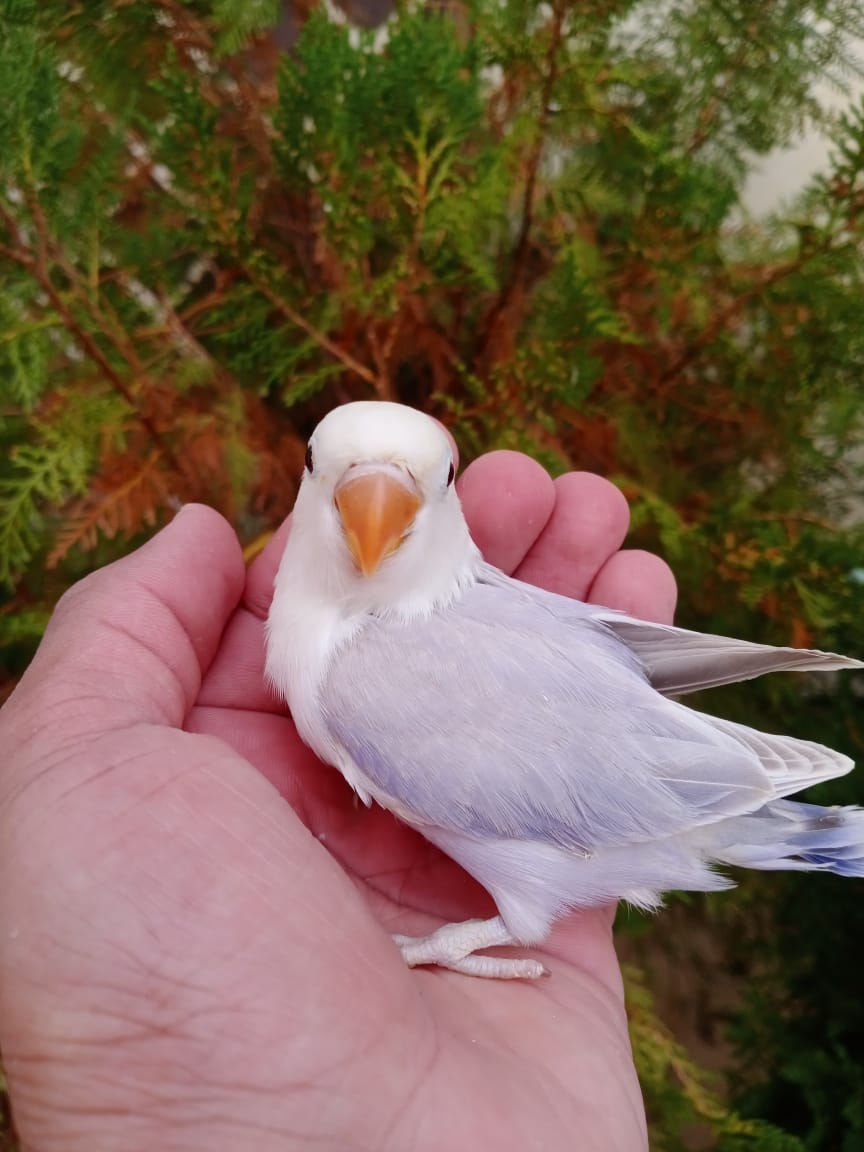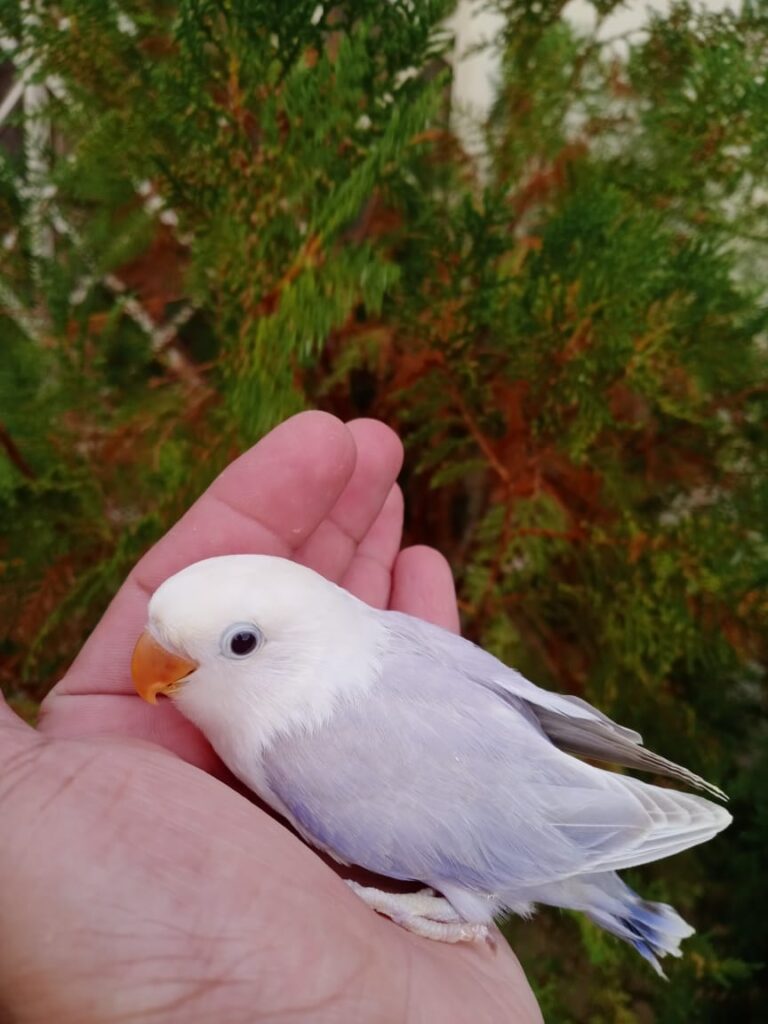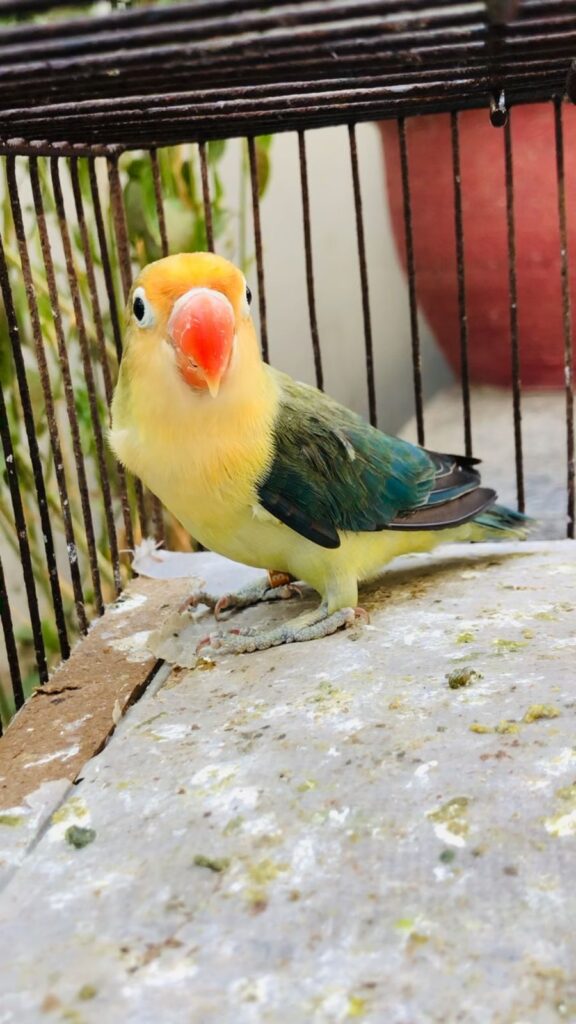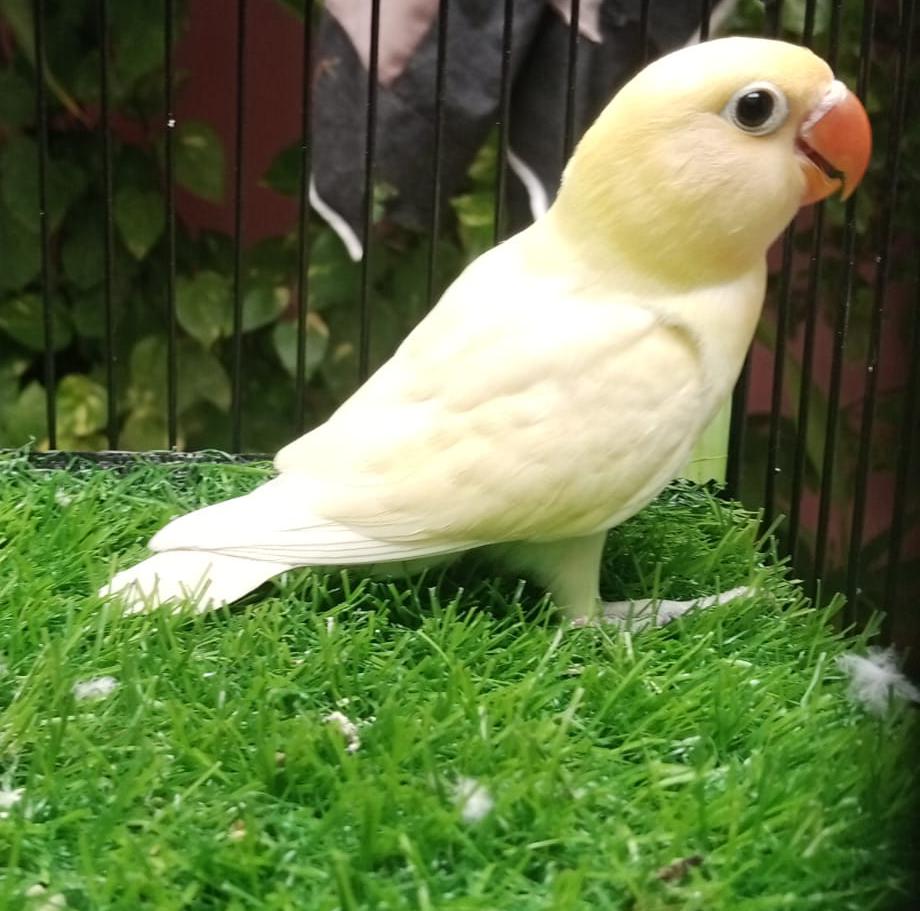
Introduction

Lovebirds, also known as Peach-faced Lovebirds, are small, brightly colored parrots that are popular as pets. They are known for their playful and affectionate nature, and their ability to bond with their human owners. But can lovebirds truly understand humans? In this article, we will explore the cognitive abilities of lovebirds, the ways in which they can communicate and interact with humans, and the best ways to understand and communicate with your lovebird.
Cognitive Abilities of Lovebirds
Lovebirds are intelligent birds, and they have the ability to learn and remember a variety of tasks. They can be trained to perform tricks, such as rolling over and fetching, and they can also learn to identify different objects and colors. This is a sign of their ability to learn and problem solve.
Lovebirds also have a strong emotional intelligence, and they are able to express a wide range of emotions, including joy, fear, anger, and sadness. They are also known for their ability to form strong bonds with their human owners, and they often display affectionate behavior, such as preening and cuddling. This strong emotional intelligence is what allows them to form such strong bonds with their owners.
Communication with Humans
Lovebirds are able to communicate with humans in a variety of ways. They can use body language and vocalizations to express their emotions and needs. For example, a lovebird may puff up its feathers to indicate that it is angry or frightened. They may also make soft chirping sounds to indicate contentment or happiness.

Lovebirds can also learn to respond to specific words and phrases. For example, a lovebird may learn to come to its owner when called by name, or to fly to a specific perch when asked to “go home.” They can also be taught to perform specific actions when given a certain command. This ability to respond to specific commands and words is a sign of their ability to understand human speech and to learn and remember specific tasks.
Interaction with Humans
Lovebirds thrive on social interaction and enjoy spending time with their human owners. They can be taught to play games, such as fetch, and they also enjoy being petted and cuddled. They also enjoy spending time outside of their cages and can be trained to fly freely around the house.
Owners can also engage in interactive activities with their lovebirds, such as teaching them new tricks, playing hide and seek, or even giving them small toys to play with. These activities not only provide mental and physical stimulation for the bird but also create a strong bond between the bird and its owner.
Best ways to understand and communicate with your lovebird

- Observe their body language: Lovebirds use their body language to communicate their emotions and needs. By observing their body language, you can better understand what they are trying to tell you.
- Listen to their vocalizations: Lovebirds also use vocalizations to communicate. Listen to the different sounds they make and try to understand what they are trying to say.
- Respond to their needs: When your lovebird communicates its needs, respond to them. If it’s hungry, give it food. If it’s thirsty, give it water. If it wants to be petted, pet it.
- Use positive reinforcement: When your lovebird does something you want it to do, reward it with a treat or praise. This will help it understand that what it’s doing is good and it will be more likely to repeat the behavior.
- Spend time with them: Lovebirds thrive on social interaction, so spend time with them. Play with them, cuddle with them, and talk to them
- Learn their unique personality: Every lovebird has its own unique personality and way of communicating. Take the time to get to know your lovebird and understand its individual quirks and preferences.
- Provide mental and physical stimulation: Lovebirds are intelligent birds that need mental and physical stimulation to stay happy and healthy. Provide them with toys and activities that will challenge them and keep them entertained.
- Avoid punishment: Lovebirds do not respond well to punishment. Instead of punishing them for negative behavior, redirect their behavior with positive reinforcement.
- Consult a professional: If you are having trouble communicating with your lovebird or understanding its behavior, consider consulting a professional bird trainer or behaviorist. They can provide you with valuable insights and advice to help you better understand and communicate with your lovebird.
Conclusion
Lovebirds are intelligent and affectionate birds that can understand and communicate with their human owners. They have the ability to learn and remember tasks, express a wide range of emotions, and form strong bonds with their owners. With proper training and socialization, lovebirds can be wonderful pets and lifelong companions. By understanding their cognitive abilities, communication methods and providing them with proper stimulation, lovebirds can be a great addition to any family. It is important to remember that every lovebird has its own unique personality and way of communicating, it takes time and patience to understand them.
- Can lovebirds understand human speech? Yes, lovebirds have the ability to learn and understand human speech. They can be taught to respond to specific words and phrases and even mimic words and phrases.
- Can lovebirds form strong bonds with their human owners? Yes, lovebirds are known for their ability to form strong bonds with their human owners. They often display affectionate behavior such as preening and cuddling.
- How do lovebirds communicate with humans? Lovebirds communicate with humans through a combination of body language, vocalizations, and responding to specific words and phrases. They can also use their beak and wings to indicate their needs.
- Can lovebirds be trained to perform tricks? Yes, lovebirds have the ability to learn and can be trained to perform tricks such as rolling over and fetching.
- Are lovebirds good pets for families? Yes, lovebirds can be a great addition to any family. They are playful and affectionate, and with proper training and socialization, they can be wonderful pets and lifelong companions.
- Is it important to provide lovebirds with mental and physical stimulation? Yes, lovebirds are intelligent birds that need mental and physical stimulation to stay happy and healthy. Provide them with toys and activities that will challenge them and keep them entertained.
- Is it ok to use punishment when training lovebirds? No, lovebirds do not respond well to punishment. Instead of punishing them for negative behavior, redirect their behavior with positive reinforcement. It’s important to remember that lovebirds are intelligent creatures and can be responsive to positive training methods.
FAQ’s
- Can lovebirds understand humans?

The answer to this question is still up for debate. Some experts believe that lovebirds may be able to understand some basic concepts, such as their name, simple commands, and the difference between positive and negative reinforcement. However, others believe that their ability to mimic human speech is simply a form of parrotry, and that they do not actually understand the meaning of the words they are saying.
- How do lovebirds communicate with humans?
Lovebirds communicate with humans in a variety of ways. They use body language, vocalizations, and responding to specific words and phrases.
- Body language: Lovebirds use their body language to communicate their emotions and needs. For example, a lovebird may puff up its feathers to indicate that it is angry or frightened. They may also make soft chirping sounds to indicate contentment or happiness.
- Vocalizations: Lovebirds also use vocalizations to communicate. They can make a wide variety of sounds, including whistles, squawks, and chirps. These sounds can be used to express a variety of emotions, such as happiness, anger, and fear.
- Responding to specific words and phrases: Lovebirds can also be trained to respond to specific words and phrases. For example, a lovebird may learn to come to its owner when called by name, or to fly to a specific perch when asked to “go home.”
- What are some signs that my lovebird understands me?
There are a few signs that your lovebird may understand you. These include:
- They respond to your commands. If you ask your lovebird to do something, such as “come” or “step up,” and they do it, this is a good sign that they understand you.
- They learn new words. If you keep repeating a word or phrase to your lovebird, and they eventually start to repeat it back to you, this is another good sign that they understand you.
- They seem to understand your emotions. If you are happy, your lovebird may start chirping or making other happy sounds. If you are sad, they may become quiet or withdrawn.
- How can I help my lovebird understand me better?
There are a few things you can do to help your lovebird understand you better. These include:
- Be consistent. Use the same words and phrases consistently when interacting with your lovebird. This will help them learn to associate the words with the correct meaning.
- Be positive. Use positive reinforcement when your lovebird does something you want it to do. This will help them learn what behaviors are desired.
- Be patient. It takes time and patience for your lovebird to learn to understand you. Don’t get discouraged if they don’t seem to understand you right away.
- What are some things I should avoid doing when trying to communicate with my lovebird?
There are a few things you should avoid doing when trying to communicate with your lovebird. These include:
- Yelling or using harsh tones. This will only frighten your lovebird and make them less likely to want to interact with you.
- Punishing your lovebird for not understanding you. This will only make them afraid of you and less likely to want to learn.
- Talking to your lovebird in a baby voice. This may seem cute to you, but it will only confuse your lovebird and make it harder for them to understand you.
- What are some fun activities I can do with my lovebird to help them learn?
There are a few fun activities you can do with your lovebird to help them learn. These include:
- Playing games. There are many different games you can play with your lovebird, such as hide-and-seek or fetch. These games will help them learn to associate certain words with certain actions.
- Teaching them tricks. You can teach your lovebird simple tricks, such as shaking hands or rolling over. This will help them learn to follow your instructions.
- Reading to them. Reading to your lovebird can help them learn new words and phrases. It can also help them to relax and feel calm.
- What are some things I should keep in mind when caring for a lovebird?
Lovebirds are social creatures and need plenty of interaction with their owners. They also need a specialized diet and cage. Here are some things to keep in mind when caring for a lovebird:
- Provide them with plenty of attention. Lovebirds need to be handled and played with regularly.
